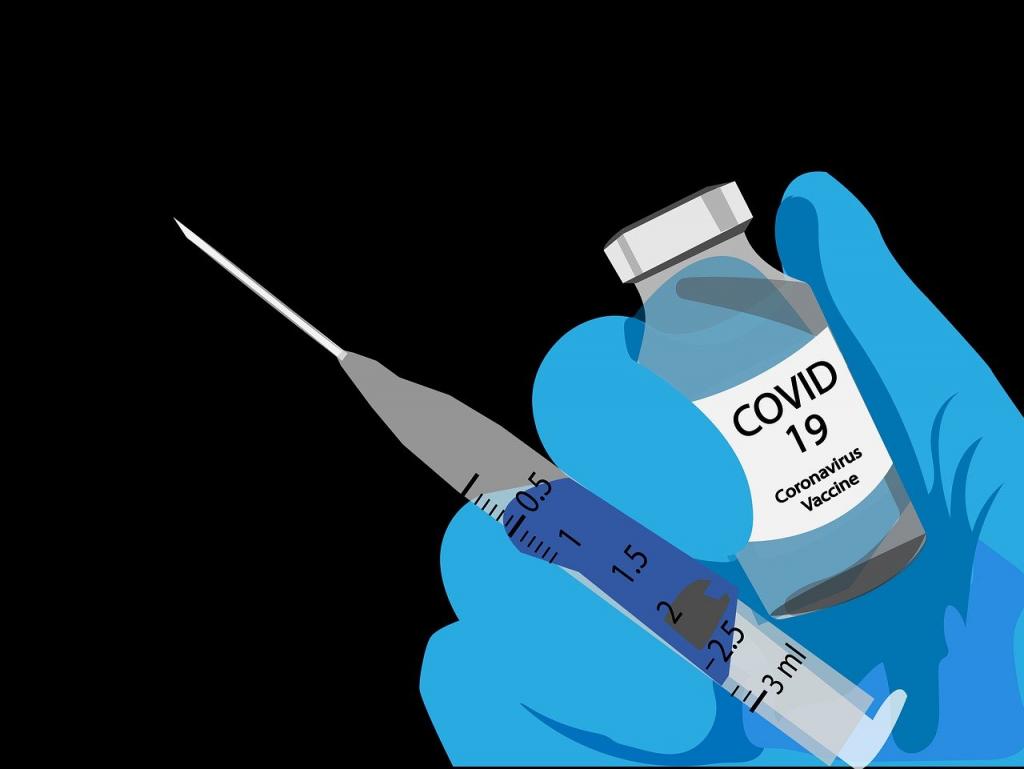The new strategy is to shame and demonize Americans who won’t get the COVID vaccine, while getting their employers to force them to comply or lose their jobs. The next steps being considered are to tax them, require it by law, or make it so that insurers or Medicare/Medicaid won’t pay for COVID care for the unvaccinated.
The picture that emerges of the anti-vaxers in the media and the mainline cultural discourse is of people that they despise anyway: evangelicals, Trump supporters, conservatives, the white working class.
Indeed, lots of those folks are refusing the vaccine. But dig down into the data and a different picture from the stereotypes emerges.
Yes, large numbers among the Republican base rejects the vaccine. But also large numbers of the Democratic base rejects the vaccine: namely, Blacks and Hispanics.
Also, young adults.
It turns out that the biggest religious demographic that resists the vaccine is not evangelicals, but the Nones, people who follow no religion at all!
And the biggest cohort of them all that refuses to get the vaccine? People with Ph.D.s! Most of whom are progressive Democrats.
So what do these groups have in common that they would all reject getting vaccinated? How are evangelicals, Nones, conservatives, Ph.D.s, working class whites, Blacks, and Hispanics alike?
I suspect that large numbers in all of these groups, for all of their differences, don’t trust “establishments,” making them skeptical of following their dictates. Both evangelicals and Nones tend to be anti-institutional and highly individualistic. They don’t like authorities telling them what to do. Black Americans have a history of being experimented upon, so they are suspicious of scientists injecting something into their arms. Hispanics are often leery of the government, not just because those here illegally fear getting identified and deported, but because many of them have fled dictatorial systems, causing them to have an aversion to being dictated to.
As for me, I go against the grain. Though I am evangelical (in the Lutheran sense), conservative, and have a Ph.D., and though I don’t trust establishments or big government, I am fully vaccinated. This is because, though I belong to many of the groups who refuse to get the vaccine, I simultaneously belong to the group that is the most open to get the vaccine. Namely, people over 60–the group most likely to die of COVID if they get it–91% of whom have been vaccinated.
Not that I’m afraid of dying. My biggest motivation is eliminating all obstacles that I can so that I will be able to hop on a plane to Australia, once that country eases up on its restrictions, so that I can see my family there!
Here are two things I don’t understand and perhaps some of you could enlighten me. First, Trump supporters tend to be vaccine hesitant, as they say. But this is the Trump vaccine! The Biden administration now wants to take credit for it, but the fast-track development of effective vaccines was one of the Trump administration’s greatest achievements!
Contrary to what we are sometimes hearing, the fast-track did not cut back the scientific testing necessary for a safe vaccine. Rather, it allowed testing to take place on multiple tracks rather than one after another. In addition, the Trump administration threw money at “Operation Warp Speed,” solving the funding problems that normally take a long time to work out. So why do so many Trump supporters not trust what Trump did?
Conversely, while Trump was in office, it was his many foes who pushed mistrust of his vaccine, most notably now-vice-president Harris, who said that she wouldn’t get Trump’s vaccine. I get it that we don’t trust the government, but do you not trust Trump’s government either?
More importantly, from a Christian point of view, the arguments against getting the vaccine that I have heard are nearly all about the risks of side effects, fears about what the vaccine might do, the right to control my own body, etc. I hear almost no consideration about our obligation to other people, which is at the heart of a distinctly Christian approach to moral issues. Lutheran ethics, in particular, is neighbor-centered. We are to look not for what is good for us, but what is good for our neighbor. We are to suffer all to help our neighbor in need. You get that all through Luther. But I am not hearing that much, even from vaccine skeptics who are Lutherans.
The purpose of masks, for example, is to protect not so much the mask wearer as other people. But the biggest opponents of masks speak of their stance in terms of themselves–even their courage in boldly risking getting COVID!–without considering the possibility that what they are risking is other people’s lives. Vaccines, though, protect both yourself and other people. (It does make sense for the vaccinated not to wear masks, since they are unlikely to either get the disease or transmit it to others.)
If there are to be tradeoffs, isn’t it morally better, at least from Luther’s neighbor-centered ethic, for you to die than for you to cause someone else to die? The worldview I am hearing, even from Christians, seems more libertarian–Ayn Rand, who has a big following among secularist conservatives, scorned the obligation to do things for others rather than for yourself–than Christian.
There is a notable exception, though, an anti-vax argument that does consider the neighbor. That’s the pro-life argument, that the development of some of the vaccines depended on stem cells from aborted children. Not that any of the vaccines contain such cells, but that the developers made use of that grisly technology. Now the mRNA vaccines did not use aborted stem cells in their development, so pro-life organizations, including the Catholic Church and the Lutheran Church Missouri Synod, say the Pfizer and Moderna vaccines can be taken in good conscience. Though these two were tested with stem cells, which is enough for some pro-lifers to reject their use. I respect that, though this position still requires balancing out our obligations to our various neighbors.
Image by Laxman Deep from Pixabay














